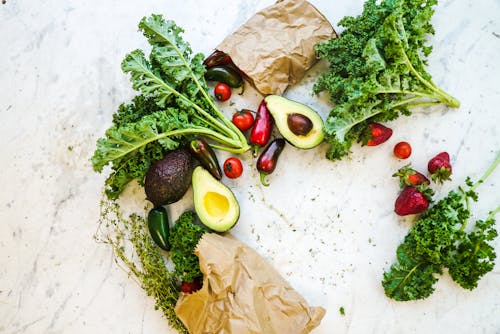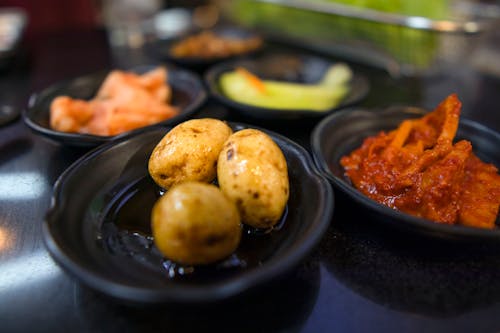
The concept of using food as medicine goes back centuries. Many of the medical treatments we have today originated from discovering unique healing benefits from plants and herbs.
Today, many people still use food as medicine instead of using modern-day prescription medications.
In Eastern parts of the world, practitioners are still using products we might refer to as “food” for crucial medical treatments. For example, medicinal mushrooms are approved for cancer treatments in Asia, and peppermint is a common treatment for many forms of IBS.
Many ‘superfoods’ such as walnuts, for example, are known for boosting brain health, and foods high in antioxidants such as blueberries are known for being cancer-fighting foods.
Research constantly proves the relationship between the foods we eat and our chances of developing various ailments or diseases. If you’re wondering how you can start using food as medicine, read on:
How Food Impacts Your Health
Dietary habits influence your risk of disease. Eating poorly could increase your risk of various health conditions and diseases. For example, eating a lot of high-sugar and high-fat foods can increase your risk of diabetes. Exposure to a lot of alcohol increases the risk of issues like liver disease. While eating the wrong foods heightens your chances of various diseases, consuming the right ingredients could also lead to significant improvements in your health.
In general, food can’t replace carefully chosen treatment plans and medicines prescribed by a doctor, but it could protect your body and give you the strength you need to overcome and avoid illness.
The medicinal benefits of food are evident in:
Vitamins and minerals
Your body only needs small amounts of vitamins and minerals, but the highly processed foods in Western diets mean many of us are deficient in essential substances like zinc and omega 3. Deficiencies in these substances can increase your risk of disease, while getting the right amount protects your body from illness.
For instance, insufficient intake of vitamin D, vitamin C, and folate can harm the heart and lead to immune dysfunction. Getting the right amount of these vitamins into your diet also protects you from those health problems.

Plant compounds
Fruits, vegetables, grains, and beans all include numerous beneficial compounds alongside vitamins and minerals. Antioxidants are one example of a beneficial compound you need in your diet. These substances help to fight against free radicals, which can damage your cells, DNA, and overall health. High levels of free radicals and oxidative stress can even be responsible for certain kinds of cancer.
Fortunately, studies show that people with diets rich in polyphenol antioxidants have lower rates of cancer, heart disease, dementia, diabetes, and depression.
Fibre
Fibre is an essential part of any healthy diet, promoting good digestion and elimination, while maintaining a healthy gut microbiota. The bacterium in your gut has a direct impact on your health. Some experts believe immune system functioning is linked to the gut.
High-fibre foods like beans, vegetables, grains, and fruits will protect you against disease, reduce inflammation and give your immune system a positive boost. Alternatively, low-fibre diets are often linked to increased risk of illnesses, stroke, and colon cancer.
Healthy fats and proteins
The fats and proteins in whole, nutritious foods are crucial to the proper functioning of your body. Amino acids, the building blocks of proteins, are pivotal in immune functioning, metabolism, muscle synthesis, and growth. Fats are responsible for fuelling the body and helping us to absorb nutrients.
Omega-3 fatty acids, for instance, which are found in foods like fatty fish, can help to regulate inflammation, and are often linked to improved immune and heart health.
Food as Medicine for Good Health: Planning Your Diet
The best way to plan a diet around using food as medicine is to understand your body. Start by getting a high-quality DNA test from Circle DNA to determine what kind of beneficial compounds, vitamins, minerals, and other substances you need. Your DNA test will show you which kinds of foods you need to focus on for good health.
Typically, the best recipes will include a combination of:
- Cruciferous vegetables:Cruciferous vegetables like kale and broccoli are packed full of antioxidants. High intake of these vegetables can reduce your risk of heart disease, and promote a longer, happier life.
- Berries: Numerous studies have found plant compounds and nutrients in berries are excellent for combatting disease. Diets rich in berries can even protect against chronic conditions like cancer and heart disease.
- Fatty fish: Sardines, salmon, and various other fatty fish products are excellent for fighting off inflammation and improving omega-3 levels. Eating a regular dose of fish will keep your heart healthy, and your brain working optimally.
- Spices: Ginger, turmeric, cinnamon, and other spices are packed full of beneficial plant compounds. Studies find that turmeric can help with treating things like metabolic syndrome and arthritis.
- Herbs: Herbs like sage, rosemary, and oregano aren’t just a great way to add flavour to your meals. Herbs can also be excellent for boosting the health benefits of your food. Many of our most common herbs are rich in antioxidants and health-promoting compounds.
- Mushrooms: Compounds in various kinds of mushrooms, like Reishi and Maitake, have been proven to improve the performance of the immune system, and protect the brain. These mushrooms are also good at fighting off infection.
Healthy Recipes for Your Medicinal Food Journey
If you’re interested in starting to use food as medicine, there are plenty of delicious recipes out there that utilize foods for good health. Look for options focusing on the products mentioned earlier in this article, and consider trying some of these delicious options.
1.Breakfast of healthy oats with a cup of green tea
Start your day with the ultimate medicinal breakfast.
Ingredients:
- 100g blueberries
- 1 sliced orange
- 150g porridge oats
- ½ a banana
- 2 tsp of almond butter
- 1 tbsp of goji berries
- 1 tbsp of chia seeds
- 1 cup of almond milk
Mix your almond milk, butter, and porridge oats together in a pan, and leave to cook for a few minutes while you chop your fruit. After placing your porridge in a bowl, add the fruit and chia seeds, with a dash of cinnamon for extra flavour. This anti-oxidant rich food will give you plenty of fibre to keep you full through the day and improve digestion.
Serve your porridge with a nice cup of green tea to boost the metabolism and give your body an additional dose of antioxidants.
2.Pumpkin oatmeal muffins
For snacks between breakfast and lunch, try something indulgent and healthy at the same time.
Ingredients:
- 3 cups of rolled oats
- 1 and a half cups of low-fat milk
- 1 cup of pumpkin puree
- ½ cup of light brown sugar
- 1 and a half teaspoons of vanilla extract
- 1 teaspoon of pumpkin spike
- 1 teaspoon of baking powder
- ½ cup of pecans
- 2 large eggs
Preheat your oven 200 degrees and stir your oats, pumpkin, milk, brown sugar and vanilla in a bowl with the spice, baking powder, and eggs. Coat a muffin tray with cooking spray and spoon in the batter, then cook for between 20-30 minutes.
Pecans are full of healthy fats, while pumpkin is packed with antioxidants, minerals, and vitamins. These oatmeal muffins also have a low-calorie content.

3.Kimchi tofu scramble
Have lunch ready in 5 minutes with this tofu scramble.
Ingredients:
- 1 block of extra firm tofu
- 2 teaspoons of olive oil
- 2 cups of spinach
- ½ cup of kimchi
- ¼ cup of green onions
- Salt and pepper to taste
Heat your oil in a large pan over a medium heat and crumble your tofu in small pieces. Add the remaining ingredients and cook for a few minutes, until everything is piping hot. Serve with a garnish of salt and pepper, with a side of avocado toast. The tofu and kimchi will help give you a boost of nutrients like vitamin AB6, iron, and folate. This meal is also great for gut health.
4.Broccoli and mushroom stir fry
Try a unique but flavourful meal for dinner and give your body a health boost.
Ingredients:
- 4 cups of broccoli
- ¼ cup of red onion
- 2 cloves of garlic
- 3-5 cups of maitake mushrooms
- 2 tsp of fresh finger
- ½ cup of veggie broth
- ½ shredded carrot
- ¼ cup of cashews
- 1 lemon (juice)
- 1 tsp of sesame oil
- 1 tsp of honey
This recipe is quite easy. Add your veggies, ginger and broth to a large skillet and cook until the broccoli is tender, then add your honey, sesame oil, shredded carrots, and cashews. Squeeze in your lemon juice and serve on top of quinoa. This recipe will give you the immune-system boosting powers of mushrooms, with dozens of vitamins and minerals from the selection of veggies. Broccoli is also excellent for iron!
Can Food Really Treat Health Conditions?
Using food as medicine, rather than following the guidance of a doctor, is generally not a good idea. Instead, use food as medicine in addition to regularly consulting with your doctor. There are a lot of factors which affect a person’s health, from genetics and stress to age, infections, and occupational hazards. Your doctor will be able to guide you to the right treatments for you based on your unique situation.
Food or dietary changes can’t compensate for poor lifestyle choices or existing injuries, and the right foods won’t always be able to cure an issue on their own. However, the right foods can protect you from future ailments and help to keep your risk of various diseases as low as possible.
Combined with advice from your doctor, the right diet could be the key to a happier, healthier, and longer life. Try CircleDNA for a DNA test that includes reports on the optimal diet for you based on your genetics.






